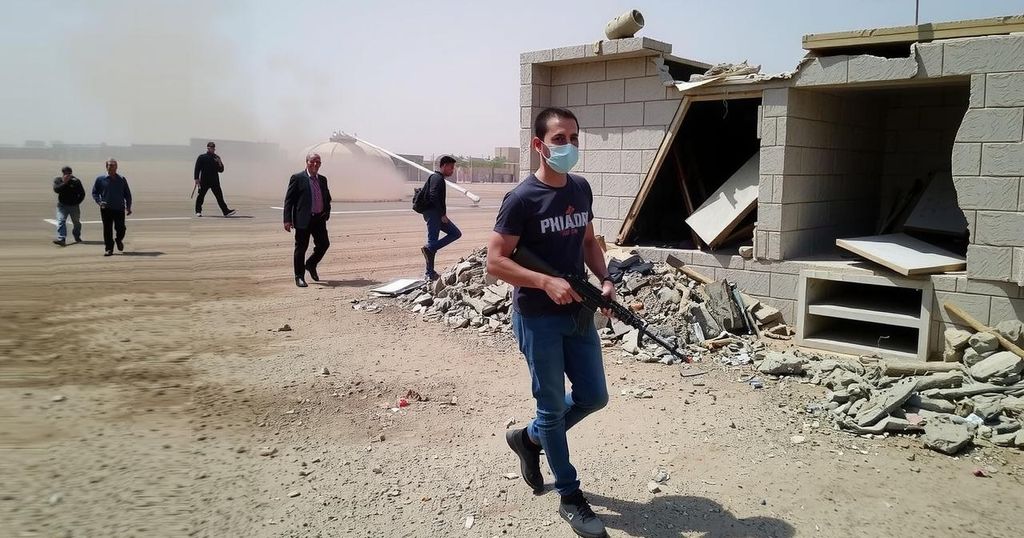Syria’s Civil War Resurges as HTS Retakes Aleppo Amid Geopolitical Shifts
Syria’s civil war has reignited as the reformed rebel group, HTS, retakes Aleppo with minimal resistance. The conflict’s evolution from peaceful protests to a brutal war highlights foreign influences from Russia, Iran, and the stagnation of Western support. Recent developments are interconnected with broader geopolitical shifts, particularly regarding Turkey, Israel, and the impact of Russia’s involvement in Ukraine.
The renewed momentum of Syria’s civil war was marked last week when a reformed rebel coalition, known as Hayat Tahrir al-Sham (HTS), swiftly reclaimed Aleppo with minimal opposition. This resurgence recalls the violent beginnings of Syria’s conflict in 2011, when peaceful protests seeking democracy were met with severe repression by President Bashar Assad’s regime. Although the initial rebel efforts gained ground, external forces, particularly from Russia and Iran, played pivotal roles in shifting the power dynamics.
Following a protracted period of stagnation, during which millions were displaced and hundreds of thousands killed, HTS’s recent advances have reignited questions surrounding the regional interplay of conflicts involving Turkey, Iran, Israel, and the implications of Russia’s diminished capacity due to the war in Ukraine. As HTS, having distanced itself from its former al-Qaeda ties yet still labelled a terrorist organization, sweeps through northwestern Syria, it signifies not only a local upheaval but hints at broader geopolitical ramifications exacerbated by shifting alliances and domestic issues in these nations.
The complex interplay of factors leading to this reemergence involves a weakened Hezbollah in Lebanon, an overstretched Iran dealing with internal and external pressures, and the geopolitical chess game intensified by Turkey’s strategic posturing in response to potential changes in U.S. foreign policy under President Donald Trump. The queries surrounding the timing of these events in Armageddon cannot be understated, particularly given the influences from Ukraine’s conflict and the power balances within the region.
The Syrian civil war, which began as a peaceful movement for democratic reforms in 2011, escalated into a brutal conflict marked by severe violence from Assad’s regime. The initial rebellion gained momentum against a poorly motivated army, but foreign interventions from Russia, Iran, and Hezbollah significantly altered the course of the war, consolidating the Assad regime’s power. For many years, the conflict led to a humanitarian crisis, resulting in significant casualties and displacement. In recent times, HTS has emerged as a dominant force within the rebel landscape, strategically capitalizing on the shifting dynamics of the war.
The recent developments in Syria highlight the intricate web of regional politics and military involvements. The HTS’s rapid advances signify a potential shift in power within the conflict, compounded by external factors such as Russia’s strained military capabilities in Ukraine and the challenges faced by Iranian and Hezbollah forces. As these dynamics unfold, they will undoubtedly have far-reaching implications for the future stability of not only Syria but the broader Middle Eastern landscape.
Original Source: abcnews.go.com




Post Comment